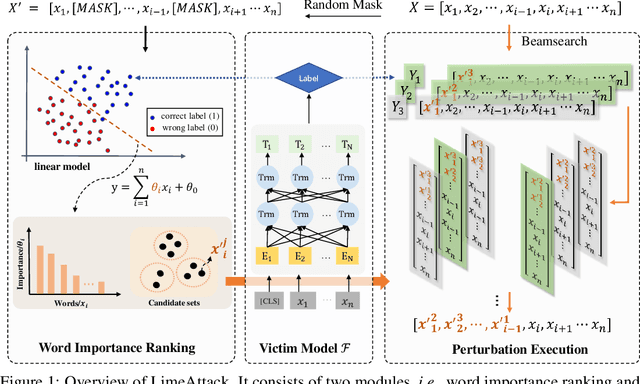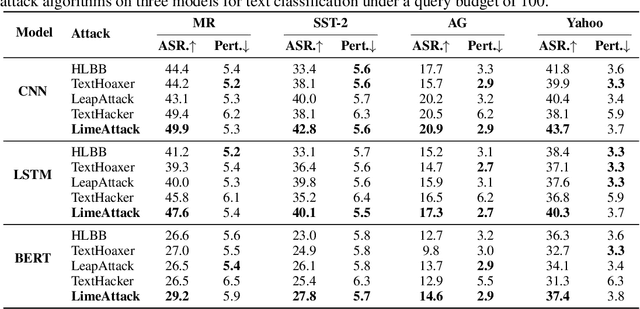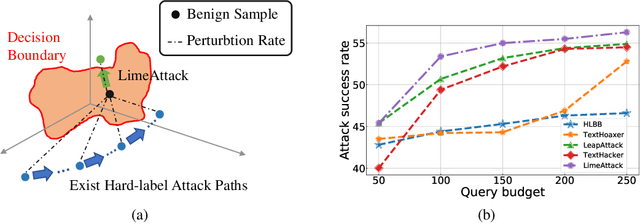Yuren Wu
LimeAttack: Local Explainable Method for Textual Hard-Label Adversarial Attack
Aug 01, 2023



Abstract:Natural language processing models are vulnerable to adversarial examples. Previous textual adversarial attacks adopt gradients or confidence scores to calculate word importance ranking and generate adversarial examples. However, this information is unavailable in the real world. Therefore, we focus on a more realistic and challenging setting, named hard-label attack, in which the attacker can only query the model and obtain a discrete prediction label. Existing hard-label attack algorithms tend to initialize adversarial examples by random substitution and then utilize complex heuristic algorithms to optimize the adversarial perturbation. These methods require a lot of model queries and the attack success rate is restricted by adversary initialization. In this paper, we propose a novel hard-label attack algorithm named LimeAttack, which leverages a local explainable method to approximate word importance ranking, and then adopts beam search to find the optimal solution. Extensive experiments show that LimeAttack achieves the better attacking performance compared with existing hard-label attack under the same query budget. In addition, we evaluate the effectiveness of LimeAttack on large language models, and results indicate that adversarial examples remain a significant threat to large language models. The adversarial examples crafted by LimeAttack are highly transferable and effectively improve model robustness in adversarial training.
BeamAttack: Generating High-quality Textual Adversarial Examples through Beam Search and Mixed Semantic Spaces
Mar 09, 2023



Abstract:Natural language processing models based on neural networks are vulnerable to adversarial examples. These adversarial examples are imperceptible to human readers but can mislead models to make the wrong predictions. In a black-box setting, attacker can fool the model without knowing model's parameters and architecture. Previous works on word-level attacks widely use single semantic space and greedy search as a search strategy. However, these methods fail to balance the attack success rate, quality of adversarial examples and time consumption. In this paper, we propose BeamAttack, a textual attack algorithm that makes use of mixed semantic spaces and improved beam search to craft high-quality adversarial examples. Extensive experiments demonstrate that BeamAttack can improve attack success rate while saving numerous queries and time, e.g., improving at most 7\% attack success rate than greedy search when attacking the examples from MR dataset. Compared with heuristic search, BeamAttack can save at most 85\% model queries and achieve a competitive attack success rate. The adversarial examples crafted by BeamAttack are highly transferable and can effectively improve model's robustness during adversarial training. Code is available at https://github.com/zhuhai-ustc/beamattack/tree/master
 Add to Chrome
Add to Chrome Add to Firefox
Add to Firefox Add to Edge
Add to Edge